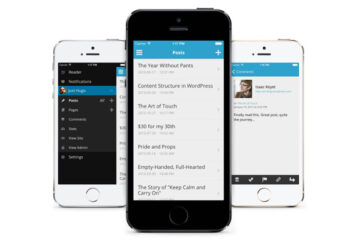Just like on Personal Computers, there are malicious Apps on Android that contain Spyware, Viruses or other types of Malware. This article will discuss ways to keep Malware off your Android device and look at the advantages and disadvantages of running Android antivirus software.
There have been over 50 malicious Android apps discovered in the Google Play Store. Fortunately, Google will pull known malware out of the Play Store, but there could be more hiding there. Many of the malicious Apps discovered have names that should make you leery of installing them. For instance:
- Sexy Legs
- Supre Bluetooth Transfer
- Quick Delete Contacts
Installing anything with the name “Sexy” in it is risky, and typos like “Supre” instead of “Super” is another thing to look out for. Unfortunately, some of the names like “Quick Delete Contacts” don’t make it sound like malware.
How Dangerous Is Android Malware?
What could a malicious App do to your Android phone or Tablet? If you have rooted your device and have granted the malicious App permissions to run as root, then the App could do anything it wants on the phone. For non-rooted Android devices, it depends on what permissions the App requested when you installed it. Here are some examples of what malware could do on your device:
- Send your phone call log out to who knows who.
- Send text messages to premium services that cost you money.
- Record the passwords you enter into applications (e.g. Any financial App you have).
- Record the text messages you send out & Record the phone calls thru android apps.
- Send malicious e-mails to all the people in your address book.
- Use your phone/tablet as part of a botnet to attack websites.
- Redirect your web browser to any website the App wants to send you to.
- Use your GPS to see where you’ve been, and where you are right now.
- As you can see, malware can do terrible damage to you.
Avoiding Installing Malware on Your Android Device
So how do you avoid Malware on your Android Phone or Tablet? There are several simple steps you can take that will probably keep you free from malware. The most important thing you can do is to pay careful attention to what Apps you install!
There are a few things you need to look at whenever you want to install a new App on your device.
How Many Times Has The App Been Installed?
Look on the right side of the Android market to see the numbers. The most popular apps have been installed millions of times. If there was malware in it, at least one of the millions of users would probably have found it.
Who Is The Developer?
Is it an individual, or a large well-known company? Anything written by Google is pretty safe of course. You can see what else the developer has written by clicking on their name under the App name. If you see a bunch of questionable apps, beware. You can also visit the developer’s website by clicking on “Visit Developer’s Website” under the App description. Make sure the websites look legit.
What Permissions Does The App Request?
At the top of the App’s Google Play Store page is a “PERMISSIONS” tab. Look at the permissions the App is requesting to see if they are appropriate. Sometimes an App will say why it needs permissions in its description, other times it will be obvious. If it looks like the permissions are too aggressive (e.g. A game that needs to read your GPS), then you might want to skip the App.
What Do The User Reviews Say About The App?
Click the “USER REVIEWS” tab at the top of the Google Play Store and see what people are saying about the App. Sometimes people will say that it’s asking for unreasonable permissions, or making their Android phone or tablet behave strangely.
Be Careful Where You Get Apps From
The Google Play Store is the safest place to install Apps from since Google polices it well. The Amazon Appstore for Android is also pretty safe. If you’re side-loading APK files or installing from smaller websites, the legitimate App you’re installing may be infected with a Trojan that will take over your device. Beware of any smaller App stores that aren’t backed by a large well-known company.
Apps to Protect Your Android Phone or Tablet
If the information above has scared you about installing Android Apps, then you might want to install an anti-malware app on your Android device to protect it. Two of the most popular Apps to protect your phone or tablet are:
Kaspersky Antivirus: Applock, Security, Protection
Free Android security solution to remove viruses and protect data privacy.
FEATURES:
- Antivirus protection — acts as a virus cleaner, automatically blocking malware and more on your phones & tablets
- Background check — scans on-demand and in real-time* for viruses, spyware, ransomware and Trojans
- Find my phone — locates & locks your Android phone or tablet if it’s lost or stolen
- Anti-Theft — protects personal information from thieves, wiping it from your device
- App Lock* — lets you add a secret code to access your private messages, photos & more
- Anti-Phishing* — keeps your financial information secure when you shop & bank online
- Web filter* — filters out dangerous links & sites when you go online
*Functionality is available only in Premium version.
Lookout Security and Antivirus
all-in-one app that protects your device, your data and your identity with powerful mobile security and identity theft protection
FEATURES:
- App Scanning: Continuous, over-the-air protection from viruses, malware, adware and spyware
- System Advisor: Checks your device for root detections to make sure the operating system is working properly
- Locate & Scream: Map the location of your device and make it sound an alarm – even when it is on silent!
- Signal Flare: Automatically save your device’s location when the battery is low
The Bottom Line
Although I believe these types of Apps can help protect your Android device, some people believe they are of limited value. The absolute best way to keep your Android phone or tablet safe is to follow the guidelines above and do your homework before installing any App.
This is a guest contribution by Ajay Dalal, owner of EtalkTech and Dricki (Digital Marketing Agency). He also works as a Freelancer on Upwork helping business owners to grow their business and increase ROI.
















